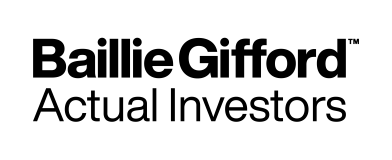Although UK share prices picked up slightly in April, the coronavirus continued to take a heavy social, corporate and economic toll and the UK overtook Spain to become the third-worst affected country in the world behind Italy and the US.
• Retail funds suffered record outflows of £10 billion during March
• 45% of UK companies had scrapped their dividend payouts by the end of Q1
• Retail sales posted their worst decline since 1995
To view the series of market updates through April, click here
Although UK share prices picked up slightly in April, the coronavirus continued to take a heavy social, corporate and economic toll. The World Health Organisation (WHO) reported that 165,225 cases had been confirmed in the UK by the end of April, with 26,097 deaths recorded, and the UK overtook Spain to become the third-worst affected country in the world behind Italy and the US.
“The fastest switch to a bear market in history” (IA CEO Chris Cummings)
The FTSE 100 Index rose by 4% during April, while the FTSE 250 Index climbed by 9%. Since the start of the year, the FTSE 100 Index has fallen by 21.8%, whereas the FTSE 250 Index has declined by 24.8%. By the end of the first quarter of 2020, 45% of UK companies had scrapped their dividend payouts, according to Link Asset Services’ Dividend Monitor.
Retail sales fell at an annualised rate of 4.3% during March, posting their worst decline since 1995. According to the British Retail Consortium (BRC), an “unprecedented surge” in demand for food and essential items the first three weeks of the month was followed by a sharp drop in sales as the UK’s lockdown was imposed. Although demand for clothing fell swiftly, sales of computer equipment, board games and fitness equipment jumped. The BRC commented: “The crisis continues; the retail industry is at the epicentre and the tremors will be felt for a long while yet”.
Meanwhile, shop prices registered their steepest pace of decline since January 2017 during April. Prices fell at an annualised rate of 1.7% in April, compared with March’s reduction of 0.8%. As discretionary spending evaporated, decreases in non-food prices more than offset higher food prices. High street retailers Warehouse and Oasis entered administration, while department store Debenhams went into administration for the second time in a year.
Retail funds suffered record outflows of £10 billion during March, according to the Investment Association (IA). Investors’ risk appetite dropped steeply, and, having been the least-popular IA sector in February, UK All Companies proved one of the most popular sectors in March, second only to the Short Term Money Market sector by net retail inflows. In fact, only six IA sectors enjoyed net retail inflows, whereas 32 ended March in negative territory. IA Chief Executive Chris Cummings described the month as “the fastest switch to a bear market in history”.
A version of this and other market briefings are available to use in our newsletter builder feature. Click here









